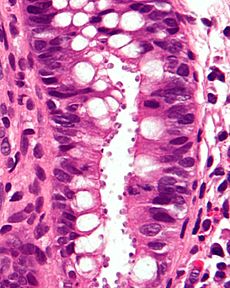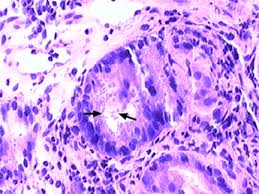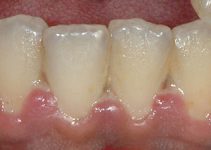Cryptosporidiosis is an infectious disorder affecting very young children as well as adults the world over. Read and find out all about the condition, including its possible causes, symptoms, diagnosis, and treatment options.
What is Cryptosporidiosis?
Page Contents
- 1 What is Cryptosporidiosis?
- 2 Cryptosporidiosis ICD9 Code
- 3 Cryptosporidiosis Incidence
- 4 Cryptosporidiosis Symptoms
- 5 Cryptosporidiosis Causes
- 6 Cryptosporidiosis Risk Factors
- 7 Cryptosporidiosis Diagnosis
- 8 Cryptosporidiosis Treatment
- 9 Cryptosporidiosis Prognosis
- 10 Cryptosporidiosis Complications
- 11 Cryptosporidiosis Prevention
- 12 Cryptosporidiosis Pictures
It is a parasitic disorder that results from an infection caused by a protozoan parasite known as Cryptosporidium – which is most commonly isolated in patients who are HIV positive and present symptoms of diarrhea.
The condition is also referred to as Crypto.
Cryptosporidiosis ICD9 Code
The ICD9 Code for this disorder is 007.4.
Cryptosporidiosis Incidence
The incidence of the disorder is not much well-defined in the United States. Around 200-300 cases of Crypto are diagnosed every year in Minnesota. Approximately 400 cases are reported annually in New York. In the past two decades, it has been recognized as one of the most common causes of waterborne conditions in the U.S. This is a rare disease and only under 3,000 cases of the condition has been reported in 2011 in England and Wales, down from around 4,000 in 2008. The disorder has a higher prevalence in developing nations that have a higher prevalence of AIDS.
The incidence of the disease peaks in children who are less than 5 years old.
Cryptosporidiosis Symptoms
Stomach cramps and watery diarrhea are the most common symptoms of this disorder. Other symptoms may include the following:
- Nausea
- Vomiting
- Loss of appetite
- Fever
- Dehydration
- Loss of weight
However, some patients of this condition may not become ill at all. They may not exhibit any symptoms and may not get sick although they carry the infection and can spread the disorder to others.
The incubation period for the parasite responsible for this disease may range from 1-12 days with an average span of 7 days. Due to this reason the initial signs of the disorder appear within 1-12 days, usually 7 days on an average, after initial exposure to the parasite which is responsible for Crypto. The signs and symptoms may appear and disappear and may last for days to weeks. Those with a weak immunity may exhibit more acute symptoms that may last for several months.
If the CD4+ cell count of sufferers is below 200, the condition is more likely to lead to diarrhea as well as other symptoms for a prolonged duration. If the CD4+ cell count is higher than 200, the ailment may not last longer than 1 to 3 weeks or a little more. However, patients may still be the carriers of the infection. This indicates that the crypto parasites may not cause the ailment but may still be living in the intestines of patients. The symptoms of Cryptosporidiosis may reappear at a later stage if the CD4+ cell count drops below 200.
Cryptosporidiosis Causes
As aforesaid, it is caused by exposure to the microscopic parasite known as Cryptosporidium. Cryptosporidium infections have been reported in humans as well as various pets, native and farm animals. Some bird, reptiles and fishes may also get affected with this parasite. There are various species of Cryptosporidium. However, only Cryptosporidium hominis and Cryptosporidium parvum are supposed to cause infection in human beings. The parasite lives in water, soil and food and also inside the intestines of people that it infects. It may also survive on surfaces that have become contaminated with waste.
This microbe is shed in the feces of infected animals and humans. Humans can become infected by this organism due to its accidental ingestion. The parasite can also spread from one person or animal to another due to skin contact or due to drinking contaminated water. Following recovery from the ailment, infected people can shed the parasite in their stool for a number of weeks.
The following activities can result in the occurrence of this disorder:
- Contact with people infected by Cryptosporidium
- Swimming in contaminated pools
- Handling infected animals or their feces to produce manure
- Drinking water contaminated by Cryptosporidium
- Intake of contaminated food (in rare cases)
As the condition is transmitted through the fecal-oral route, the possibility of its transmission is the greatest from diapered children, infected individuals with diarrhea as well as people with poor hygiene.
Cryptosporidiosis Risk Factors
Certain individuals are more susceptible to infection by Cryptosporidium more than others. This high-risk group includes:
- Travelers to developing countries
- Men indulging in same-sex physical intimacy
- Individuals working in animal farms
- Parents of children infected with Cryptosporidiosis
- People working in close contact with individuals infected with Cryptosporidiosis
- Child care workers
- Those who drink untreated water from lakes or rivers
- Swimmers who swallow even small amounts of water from swimming pool
- Kids, including diapered children , who attend day care
Those with weakened immunity are at greater risk of developing an acute form of this condition.
Cryptosporidiosis Diagnosis
This infectious disorder is detected by a microscopic examination of the stool which helps in diagnosing the parasite that is responsible for the disorder. When a doctor suspects a person with diarrheal disorder to be suffering from Cryptosporidiosis, he or she tends to order a Cryptosporidium test. As yet, most laboratories do not routinely carry out the tests that are necessary to detect this specific parasite.
A Cryptosporidium test should be specifically ordered for HIV/AIDs sufferers or other immunocompromised individuals (such as cancer or transplant patients) who are undergoing treatment for diarrhea.
Cryptosporidiosis Differential Diagnosis
The differential diagnosis of this condition involves telling its symptoms apart from a range of types of Gastroenteritis, which include:
- Amoebiasis
- Escherichia coli O157
- Campylobacter enteritis
- Giardiasis
- Salmonellosis
- Shigellosis
- Viral gastroenteritis
Cryptosporidiosis Treatment
The condition does not have any specific treatment. Most people with Cryptosporidiosis get better without any medical treatment. Pain management, maintaining electrolyte balance and rehydration can ensure management of the symptoms associated with this disorder. Routine rehydration measures are usually enough to manage this disease in healthy people.
Sometimes, if dehydration occurs, administration of intravenous fluids or oral liquids may be necessary. Temporary improvement of the symptoms may be possible with anti-diarrheal medicines which decrease bowel movements.
Cryptosporidiosis patients should get benefit by getting in touch with health care providers who can discuss their diet and provide them with nutritional counseling that can minimize the symptoms of diarrhea to the best possible extent.
Cryptosporidiosis and Medications
As of now, no medication has yet been found to cure the symptoms of this disease. However, some sufferers may show positive response to some types of antibiotics. Certain drugs, such as Paromomycin, may decrease the signs and symptoms of the disorder. New medicines for the condition are still under testing stage.
The problems of dehydration can be prevented with the aid of sports-ade drinks and oral rehydration powders.
Immune-strengthening therapies such as oral probiotics are sometimes useful resolving this condition y promoting the growth of beneficial bacteria in the intestine. People who suffer from low immunity due to the presence of underlying conditions such as diabetes or AIDS can derive benefit from such therapies.
Cryptosporidiosis Prognosis
In the majority of healthy people, diarrhea induced by this condition is generally self-limited in nature. In immunocompromised individuals, however, the diarrhea is often prolonged for more than one week or persistent for over two weeks. The disorder may be acute, chronic and also life-threatening in some cases in such individuals – along with extraintestinal manifestations.
Those with Cryptosporidiosis and AIDS tend to develop chronic symptoms more frequently. Around 10% of them have a fulminant course. The outcome is generally improved with the help of antiretroviral treatment. However, persistence of some symptoms have been reported in certain individuals. These include:
- Loose stools
- Persistent abdominal pain
- Extraintestinal sequelae, such as pain in the head, joints or eyes and fatigue or dizzy spells
Cryptosporidiosis Complications
The complications of this disorder include the following:
- Persistent diarrhea
- Worsening malnutrition
- Problems in fitness and cognitive abilities
- Respiratory tract problems in healthy children as well as AIDS patients with intestinal Cryptosporidiosis
- Conditions like Acalculous cholecystis, Pancreatitis, Sclerosing cholangitis, and papillary stenosis in immunocompromised people
Chronic cases of Cryptosporidiosis may get complicated by malnutrition and malabsorption leading to death in malnourished children and individuals with AIDS.
Cryptosporidiosis Prevention
Catching this infection can be prevented by the following measures:
- Not swimming in natural sources of water, such as creeks, dams or rivers, within a week after heavy downpour
- Avoiding swallowing water while swimming
- Not drinking untreated water from streams or lakes or using them only after boiling the water to kill Cryptosporidium
- Washing hands thoroughly with water and soap for around 10 seconds after handling infected animals or their manure or changing nappies, using the toilet or working in the garden
- Avoiding foods or drinks that may possibly be contaminated, such as tap water or raw vegetables, while travelling to developing nations
The transmission of Cryptosporidium can be avoided by measures like:
- Not sharing linen or towels for at least two weeks after the diarrhea has stopped
- Not swimming in any water source for at least two weeks after the diarrhea has stopped
- Not handling food items for at least two days after the diarrhea has stopped
Children affected with this disorder and showing symptoms of diarrhea should be kept from going to childcare, school, preschool or playgroup for at least 24 hours after the diarrhea has stopped completely. Even after diarrhea ends, those infected by the Cryptosporidium parasite may return to school or workplace but keep washing their hands after using the toilet. This is due to the fact that oocysts may continue to pass into stools for weeks even after the symptoms subside.
It must be remembered that Cryptosporidium is resistant to disinfectants like chlorine. Hence, it can persist in water even after being chemical treatment. For this reason, boiling is the most reliable technique to ensure safety of water as Cryptosporidium parasites cannot survive in very high temperatures.
Cryptosporidiosis Pictures
The following images show the appearance of Cryptosporidiosis sufferers as well as the Cryptosporidium parasite.
Picture 1 – Cryptosporidium Parasite
Picture 2 – Cryptosporidiosis of the colon Image
If you suspect your child, or any family member or friend, to be exhibiting the symptoms of Cryptosporidiosis, immediately get in touch with a professional medical care provider. This can ensure quick recovery from this extremely discomforting disease and also eliminate all possibilities of development of complications in future.
References:
http://en.wikipedia.org/wiki/Cryptosporidiosis
http://www.patient.co.uk/doctor/cryptosporidiosis
http://www.webmd.com/hiv-aids/prevent-cryptosporidiosis
http://emedicine.medscape.com/article/215490-overview



